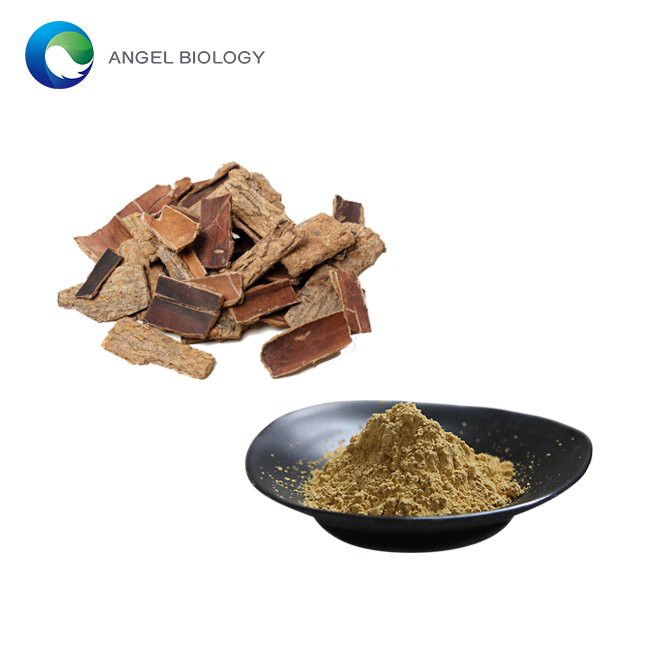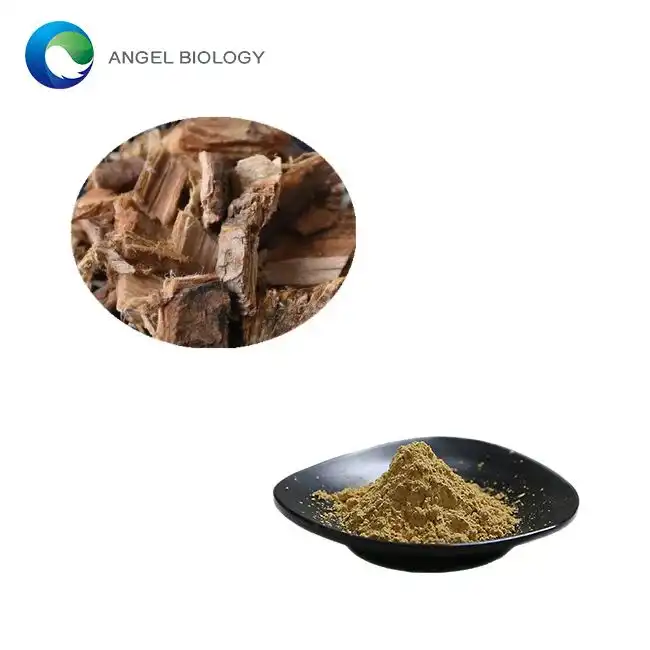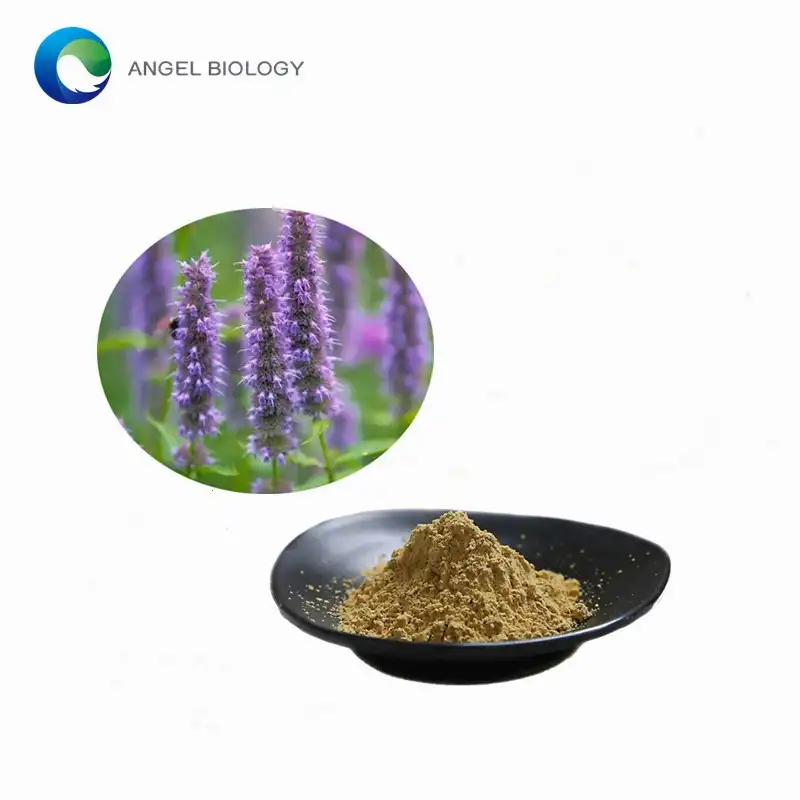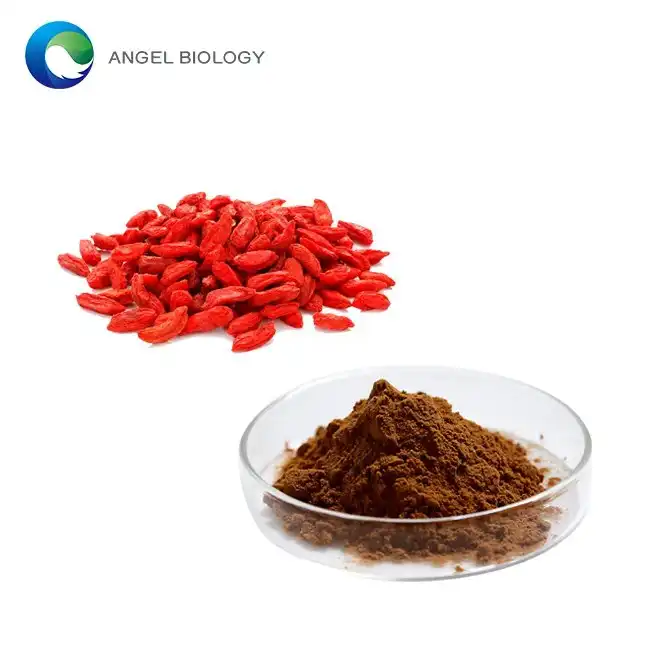How Does L-Carnosine Powder Support Brain Health?
L-Carnosine powder is a promising supplement for supporting cognitive function and brain health. This natural dipeptide, composed of beta-alanine and L-histidine, has gained attention in research for its neuroprotective properties. We'll explore how L-Carnosine powder works to protect and enhance brain function, its benefits for cognitive performance, and its potential to protect against age-related decline.
What are the neuroprotective mechanisms of L-Carnosine powder?
L-Carnosine Powder as an Antioxidant for Brain Cells
L-Carnosine powder functions as a powerful antioxidant in the brain, neutralizing harmful free radicals that damage neurons and impair cognitive function. The brain is particularly vulnerable to oxidative stress due to high oxygen consumption and relatively low antioxidant defenses. L-Carnosine powder scavenges reactive oxygen species and reactive nitrogen species, preventing cellular damage. It also chelates metal ions like copper and zinc, which can trigger oxidative reactions when present in excess. By reducing oxidative stress, L-Carnosine powder helps maintain neuronal integrity and supports optimal brain function, potentially slowing neurodegenerative processes associated with aging and neurological disorders.
How L-Carnosine Powder Prevents Protein Glycation in Neural Tissues
Protein glycation, the non-enzymatic binding of sugars to proteins, significantly contributes to brain deterioration and neurodegenerative diseases. L-Carnosine powder demonstrates remarkable anti-glycation properties by inhibiting the formation of advanced glycation end products (AGEs) in neural tissues. Glycated proteins lose functionality and form cross-links, creating insoluble aggregates that disrupt cellular processes. L-Carnosine powder prevents this by reacting with carbonyl groups on sugars before they attach to proteins. It can also interact with already-formed AGEs, potentially reversing some damage. This anti-glycation activity preserves the structure and function of long-lived proteins in the brain, which are especially susceptible to glycation-induced damage over time.
The Role of L-Carnosine Powder in Reducing Neuroinflammation

Chronic brain inflammation is a key factor in cognitive decline and neurodegenerative conditions. L-Carnosine powder exhibits significant anti-inflammatory properties that help mitigate neuroinflammation. Studies show it suppresses pro-inflammatory cytokines and inhibits inflammatory signaling pathways in glial cells, the brain's immune cells. By modulating inflammatory responses, L-Carnosine powder maintains a balanced immune environment, preventing excessive inflammation that could damage neurons. Additionally, it reduces microglial activation, a process implicated in neurodegenerative diseases. Through these anti-inflammatory mechanisms, L-Carnosine powder creates a neuroprotective environment supporting optimal brain function and cognitive abilities.
How does L-Carnosine powder enhance cognitive performance?
L-Carnosine Powder's Effect on Memory and Learning
L-Carnosine powder enhances memory formation and learning capabilities through several mechanisms. It may enhance synaptic plasticity, the fundamental process underlying learning and memory. By protecting neurons from oxidative damage and promoting healthy neuronal communication, L-Carnosine powder supports efficient memory formation and retrieval. Animal studies show that L-Carnosine powder supplementation improves performance in memory tasks, particularly spatial and recognition memory. Its neuroprotective properties help maintain hippocampal integrity, a brain region critical for memory that's vulnerable to age-related deterioration. L-Carnosine powder also supports neurotransmitter function, potentially enhancing learning and memory signaling pathways. For those experiencing age-related cognitive changes or seeking to optimize cognition, L-Carnosine powder may help maintain and improve memory and learning capabilities.
How L-Carnosine Powder Improves Mental Clarity and Focus
L-Carnosine powder users often report enhanced mental clarity and improved focus. These benefits likely stem from the supplement's effects on brain metabolism and neurotransmitter systems. L-Carnosine powder optimizes brain energy metabolism by supporting mitochondrial function, ensuring neurons have adequate energy for optimal performance. This improved energy efficiency translates to better concentration and mental stamina. L-Carnosine powder may also influence neurotransmitter balance, particularly affecting acetylcholine, crucial for attention and focus. By reducing toxic compound accumulation that clouds thinking, L-Carnosine powder helps maintain clearer mental states. Its anti-inflammatory and antioxidant properties contribute to improved neural efficiency, potentially reducing brain fog and enhancing cognitive processing speed. For those struggling with concentration difficulties or mental fatigue, L-Carnosine powder might provide support for greater mental clarity and sustained focus.
L-Carnosine Powder and Mood Regulation
L-Carnosine powder may influence mood regulation and emotional well-being, closely linked to overall brain health. Research suggests it could modulate mood-associated neurotransmitters like serotonin and dopamine, potentially contributing to more stable emotional states. Its antioxidant properties may protect emotional processing brain regions from oxidative damage. Some studies have observed potential antidepressant-like effects in animal models, suggesting applications for supporting emotional well-being. By reducing neuroinflammation linked to mood disorders, L-Carnosine powder may help maintain healthy mood regulation pathways. Its neuroprotective effects on the hippocampus and prefrontal cortex—regions crucial for both cognition and emotion—further support its potential role in promoting emotional balance. While more research is needed, existing evidence suggests L-Carnosine powder's brain-supportive properties may extend to emotional health alongside cognitive function.
Can L-Carnosine powder slow age-related cognitive decline?
L-Carnosine Powder's Impact on Brain Aging Processes
L-Carnosine powder shows promise in addressing fundamental brain aging processes. Aging brains experience increased oxidative stress, protein modification, and cellular damage—all targets of L-Carnosine powder. Research indicates it may slow cellular senescence in brain tissue by protecting against telomere shortening and DNA damage. L-Carnosine powder supports natural brain detoxification, helping clear accumulated metabolic waste products that impair neural function. Its anti-glycation properties are particularly relevant, as glycation-induced protein damage accelerates with age and contributes to cognitive decline. Studies show L-Carnosine powder can reduce lipofuscin formation ("age pigment") that accumulates in aging neurons and disrupts function. By addressing multiple aspects of brain aging simultaneously, L-Carnosine powder offers a comprehensive approach to supporting brain health as we age, potentially slowing age-related cognitive changes.
How L-Carnosine Powder Protects Against Neurodegenerative Conditions
Emerging research suggests L-Carnosine powder may protect against neurodegenerative conditions through multiple mechanisms. Its anti-amyloidogenic properties have garnered interest, as it appears to inhibit amyloid protein formation and aggregation—implicated in several neurodegenerative disorders. Laboratory studies show L-Carnosine powder can disaggregate already-formed amyloid fibrils, suggesting therapeutic applications. Additionally, it helps maintain neuronal mitochondrial function, potentially preventing energy deficits that often precede neurodegeneration. Its metal-chelating properties are significant, binding excess copper, zinc, and other metals that, when dysregulated, contribute to neurodegenerative processes. By reducing excitotoxicity—damage from excessive neurotransmitter activity—L-Carnosine powder may preserve neural integrity where glutamate regulation is disrupted. Furthermore, its ability to cross the blood-brain barrier means these protective effects can be delivered directly to neural tissues. While clinical trials continue, these neuroprotective properties make L-Carnosine powder promising for supporting brain health in those concerned about neurodegenerative conditions.
conditions.
L-Carnosine Powder Supplementation Strategies for Long-term Brain Health
Effective L-Carnosine powder supplementation requires consideration of several factors to maximize brain health benefits. Research suggests dosages ranging from 500-1000 mg daily, often divided into two doses, may provide cognitive benefits. Optimal dosing varies based on age, health status, and specific cognitive concerns. L-Carnosine powder absorbs best on an empty stomach, though some prefer taking it with meals to minimize digestive discomfort. For enhanced efficacy, it can be combined with zinc, which supports carnosine's stability, or vitamin E, which works synergistically with its antioxidant properties. Long-term consistency appears important, as neuroprotective effects likely accumulate over time. Some research suggests cycling supplementation (e.g., 3 months on, 1 month off) may prevent tolerance, though this needs further study. When selecting L-Carnosine powder supplements, pharmaceutical-grade products with verified purity ensure full potential benefits. Consulting healthcare providers before beginning supplementation is advisable, particularly for those with health conditions or taking medications.
Conclusion
L-Carnosine powder offers multifaceted support for brain health through its antioxidant, anti-glycation, and anti-inflammatory properties. Research suggests it may enhance cognitive performance, protect against age-related decline, and support overall neurological function. While more clinical studies are needed, current evidence indicates L-Carnosine powder could be a valuable supplement for those seeking to maintain and optimize their brain health across the lifespan.
Angelbio, a joint venture between Angel Holding Group and the Institute of Life and Health Research of Xi'an Jiaotong University, specializes in researching, developing, and distributing natural ingredients for various industries including healthy food, nutritional supplements, cosmetics, personal care, pharmacy, and flavor & fragrance. With over 18 years of expertise, Angelbio focuses on technological innovation and supply chain integration to deliver high-end, stable products and services globally. Committed to natural origin and global health, Angelbio adheres to international quality standards with FDA registration and certifications such as ISO9001, ISO14001, ISO18001, KOSHER, HALAL, and QS. Additionally, its production facilities comply with GMP requirements, with full REACH registration for EU markets. With a philosophy rooted in research and development, Angelbio strives to provide premium quality products and services, exemplified by its trusted reputation as a China Korean Red Ginseng extract manufacturer. For inquiries or further information, contact angel@angelbiology.com for dedicated assistance.
References
1. Boldyrev, A. A., Aldini, G., & Derave, W. (2013). Physiology and pathophysiology of carnosine. Physiological Reviews, 93(4), 1803-1845.
2. Hipkiss, A. R. (2018). Carnosine and its possible roles in nutrition and health. Advances in Food and Nutrition Research, 84, 85-111.
3. Bellia, F., Vecchio, G., & Rizzarelli, E. (2014). Carnosine and carnosine derivatives in the treatment of neurological disorders. CNS & Neurological Disorders-Drug Targets, 13(1), 16-27.
4. Rajanikant, G. K., Zemke, D., Senut, M. C., Frenkel, M. B., Chen, A. F., Gupta, R., & Majid, A. (2007). Carnosine is neuroprotective against permanent focal cerebral ischemia in mice. Stroke, 38(11), 3023-3031.
5. Corona, C., Frazzini, V., Silvestri, E., Lattanzio, R., La Sorda, R., Piantelli, M., & Sensi, S. L. (2011). Effects of dietary supplementation of carnosine on mitochondrial dysfunction, amyloid pathology, and cognitive deficits in 3xTg-AD mice. PLoS One, 6(3), e17971.
6. Preston, J. E., Hipkiss, A. R., Himsworth, D. T., Romero, I. A., & Abbott, J. N. (1998). Toxic effects of beta-amyloid(25-35) on immortalised rat brain endothelial cell: protection by carnosine, homocarnosine and beta-alanine. Neuroscience Letters, 242(2), 105-108.










